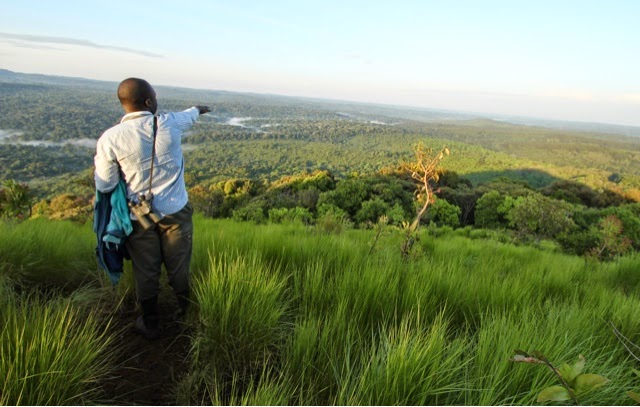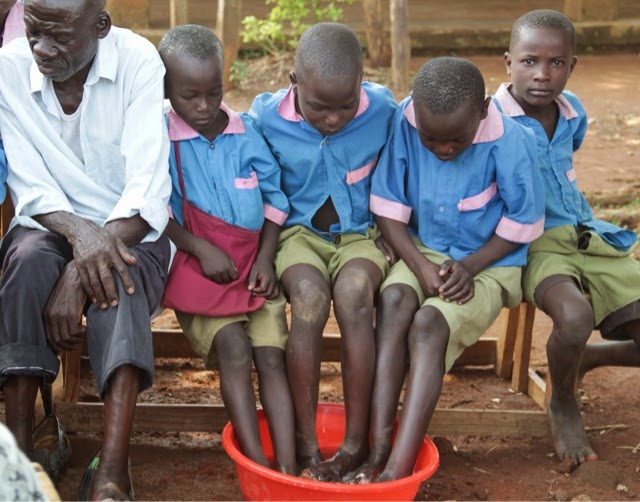For the most part, the experience of being a white female in Mumias was rewarding and moving. Everyone we met was kinder than I could begin to express in this blog post. They shook our hands hello and goodbye with endearing smiles, often welcomed us with a song and dance, offered up their chairs in claustrophobic little rooms during torrential downpours, served us tea and fried bread to quench our thirst (despite the humid, unbearable heat), and ALWAYS made sure we were “shiba”ed, or full. Each of these experiences was heartwarming and charming, as it was evident that our hosts wanted nothing more than to make us feel at home, comfortable and loved in our temporary home.
However, there were some times that my race made me feel uncomfortable and sometimes even bitter about the place of privilege that I’m from. While it is touching that someone would feel so blessed to have me in their home, a part of me wishes these feelings didn’t exist at all. They imply a difference between us – that I am in some way better than them. In one conversation with Edwin he said “you, when you are visiting a support group, you have reduced the stigma to zero.” While for Edwin, this simple fact of bringing a white person to his field visits brings him pride, this makes me uncomfortable and even angry. Why should my simple presence at a support group be so powerful that I have eliminated any sense of stigma? Why should my acceptance or acknowledgment of a group of people make them feel respected?
I chose to travel to Mumias to do grassroots global health work and I’m so thankful to have the opportunity to make a difference somewhere I was needed. As interns this summer, we were able to find valuable data through the countless hours we spent interviewing beneficiaries of WOPLAH’s projects; we were able to be of technical assistance to Edwin and his team by updating their website, training them on social media skills and connecting them with potential partners and donors; and we created a new Partner Action Framework that will guide the allocation of around $10,000 worth of funds from GlobeMed at CC. I am so thankful, and I also know that WOPLAH’s team is so appreciative for the work we have been able to do this summer that will also carry on into the coming year.
However, I can’t help but think about the fact that a good majority of WOPLAH’s projects would not exist without GlobeMed at CC’s funding. And I cannot help but resent that by traveling to Mumias, Kenya I provided something that the community otherwise would not have. I find myself asking questions like: “is my act of traveling to Mumias to do grassroots work only exacerbating the evident disparities in the world by reinforcing my privilege?” and “Is GlobeMed’s partner model creating empowerment or is it causing dependency in the long-run?” I know, and have witnessed first-hand, that many of WOPLAH’s projects are on their way to becoming self-sustainable and in the future they will no longer need outside funding, but will continue to reduce stigma and improve the livelihoods of people living with HIV/AIDS through their own capacity. I also know that several of GlobeMed’s other chapters have moved on to new partners because their previous partners have become self-sufficient and no longer needed their funding. This makes me hopeful about the future of the work we are doing, and I feel it is important to continue asking these questions about privilege, dependency, and status so as to constantly and critically rethink how we engage as members of the global community. I hope that asking these questions will require me to keep moving deliberately down this path of global health I find myself entering as a recent grad rather than becoming stagnant in fear of acting on the privilege I come from.








































